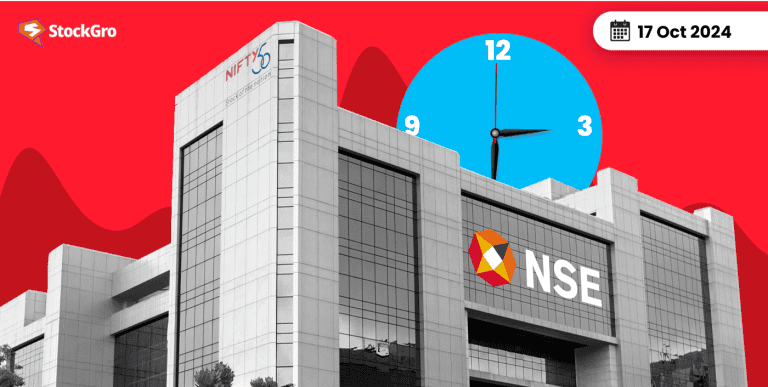
Introduction
As Axis Bank gears up to release its Q2 results for FY2024, all eyes are on its stock performance. The bank’s share price has taken a notable dip, falling over 1% ahead of the earnings announcement. But what’s driving this decline, and what do experts expect from the upcoming report?
In this blog, we’ll break down the key factors that are influencing Axis Bank’s stock movements, what brokerages are forecasting for the bank’s Q2 earnings, and whether investors should be concerned or optimistic. By diving into the numbers and insights from top brokerages, we’ll help you understand the bigger picture.
The Numbers: Why did Axis Bank’s share price dip?
Axis Bank’s share price dropped by more than 1% as the bank approaches the release of its Q2 results for FY2024. The fall in share price is significant given the anticipation surrounding the upcoming earnings, especially after a relatively strong Q1 performance.
Some market experts attribute the drop to broader market volatility. However, the more pressing question for investors is how the bank’s Q2 results will affect its stock in the long run. Is this drop an overreaction, or a sign of underlying issues?
Also Read: Tech Mahindra Q2 Earnings Preview: Muted Revenue Growth with Possible Margin Expansion
Axis Bank Q2 Results: What is expected?
Several analysts have already weighed in on what they expect from Axis Bank’s Q2 performance, and overall, the sentiment seems cautiously optimistic. Let’s take a closer look at what they are forecasting.
1. Revenue growth and Profit margins
Brokerages expect Axis Bank to report moderate revenue growth for Q2 FY2024. According to a Business Today report, analysts anticipate a 7-14% jump in net profit compared to last year. This growth would represent a positive trajectory for the bank, although it’s still considered modest when compared to some of its peers.
- Net Interest Margin (NIM): One of the key metrics to watch will be the Net Interest Margin (NIM), which is expected to remain around 4%, according to analysts. This is crucial as NIM reflects the difference between the interest income earned and the interest paid out by the bank. A stable NIM indicates that the bank is maintaining a healthy balance between its lending and borrowing operations.
| Metric | Expected Value for Q2 FY24 |
| Net Profit Growth | 7-14% |
| Net Interest Margin (NIM) | ~4% |
2. Loan growth and Asset quality
Another critical area where analysts are looking for positive indicators is in loan growth and asset quality.
- Loan Growth: Axis Bank has seen steady loan growth over the past few quarters, and experts expect this trend to continue. In particular, a report by Livemint suggests that loan growth could see a double-digit percentage increase in Q2, driven largely by retail loans and corporate credit.
- Asset Quality: On the flip side, investors are paying close attention to any deterioration in asset quality, especially considering the banking sector’s exposure to non-performing assets (NPAs). However, the general consensus from brokerages is that Axis Bank has done well in managing its asset quality, with no significant spike in NPAs expected for Q2.
3. Provisions and Credit Costs
Provisioning for bad loans will also be a critical factor in Axis Bank’s Q2 results. Experts believe that the bank could report lower credit costs, which could positively impact its bottom line. If the bank’s provisions for bad loans decrease, this would further support profitability in Q2.
You may also like: HDFC Life announces Q2 Results with key highlights
What could affect the future of Axis Bank Stocks?
As we move past Q2, several factors will determine the future trajectory of Axis Bank’s stock performance.
1. Monetary policy and Interest rates
The Reserve Bank of India’s (RBI) stance on interest rates will likely have a significant influence on Axis Bank’s profitability moving forward. Higher interest rates generally benefit banks as they can charge more on loans, but they also raise borrowing costs for consumers and businesses. Investors will need to keep an eye on any announcements from the RBI in the coming months.
2. Macroeconomic Conditions
Broader macroeconomic conditions, including inflation and global market trends, could also impact Axis Bank’s performance. A slowing global economy might lead to reduced demand for corporate loans, while high inflation could erode consumer spending power, indirectly affecting the bank’s retail portfolio.
3. Competition
The banking sector in India is highly competitive, with both private and public sector banks vying for market share. Axis Bank has been steadily growing its retail banking operations, but faces stiff competition from players like HDFC Bank and ICICI Bank. How Axis Bank differentiates itself in terms of digital offerings and customer service could be key to maintaining its competitive edge.
You may also read: Different types of inflation: How does it impact your finances?
Should you buy, hold, or sell Axis Bank Stocks?
Given the current sentiment and upcoming Q2 results, what should you do with your Axis Bank stocks?
If you’re already holding Axis Bank shares, the upcoming Q2 results will provide crucial insights into the bank’s future prospects. Many analysts maintain a “buy” or “hold” recommendation, citing strong fundamentals and growth potential. However, it’s worth noting that Axis Bank’s recent stock dip and the market’s volatility may continue to weigh on short-term performance.
Investors should carefully consider their long-term financial goals and risk tolerance. If you’re bullish on the Indian banking sector and believe Axis Bank can navigate near-term challenges, the current dip might offer a good buying opportunity. However, if you’re more risk-averse, waiting for the Q2 results could provide more clarity.
You may also read: Accenture’s Q3 boosts Indian IT stocks: signs of sector recovery?
Conclusion: What’s next for Axis Bank?
Axis Bank’s Q2 results are expected to offer key insights into its performance and future trajectory. While the recent decline in share price might raise concerns, many brokerages remain optimistic about the bank’s profitability, NIM, and loan growth. However, the bank still faces challenges, particularly with operating expenses and potential macroeconomic headwinds.
As always, it’s important to stay informed and keep an eye on broader market trends when making investment decisions. Whether you’re looking to buy, hold, or sell, the upcoming earnings report will be crucial in shaping the future of Axis Bank stocks.

